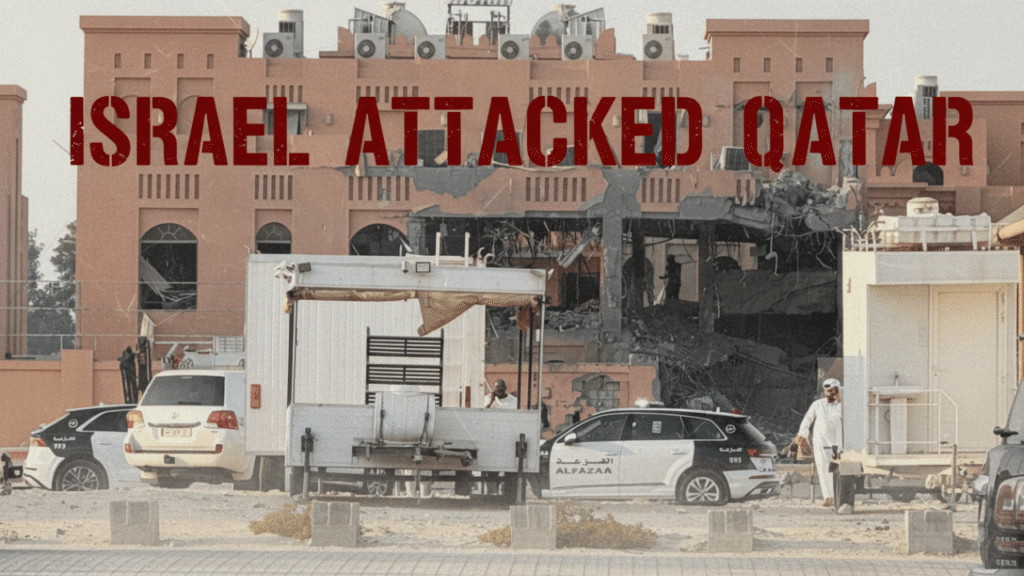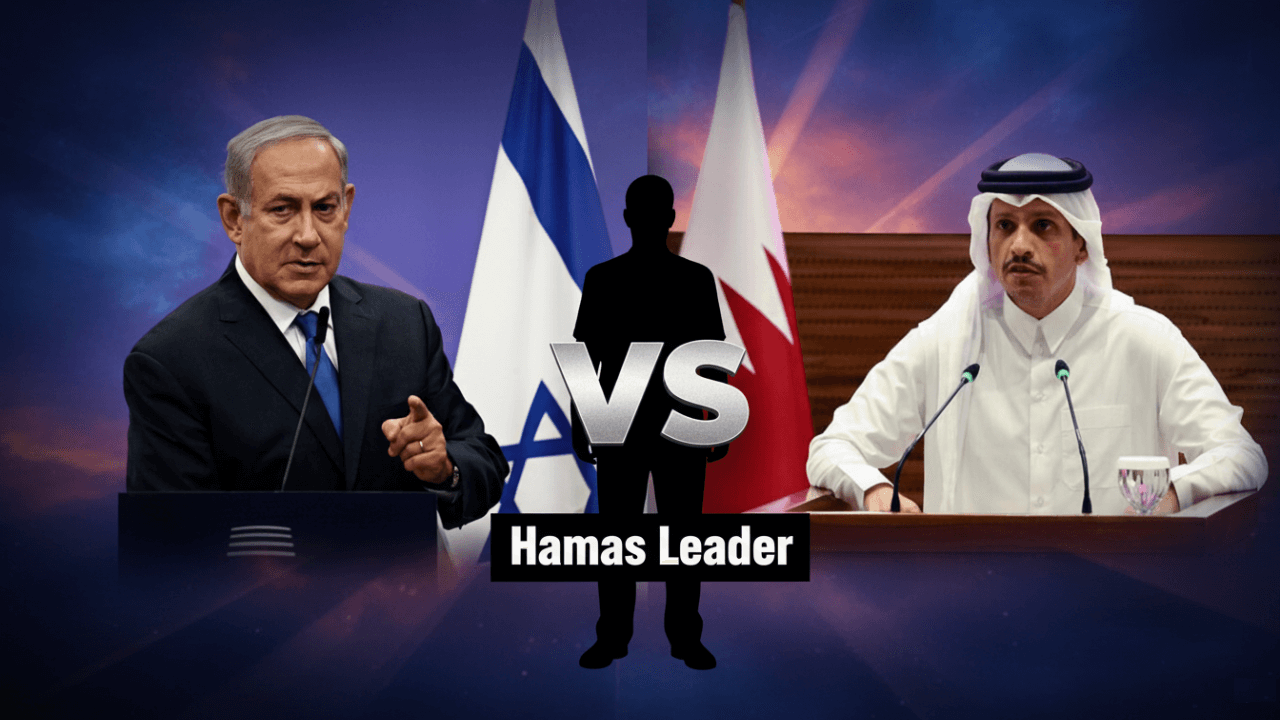DOHA, Qatar – In a dramatic escalation that has sent shockwaves through the Middle East, Israel confirmed it carried out a targeted bombing in the heart of Doha, marking the first such attack on Qatari soil and severely straining a critical diplomatic relationship.
The strike, which targeted a residential building housing senior Hamas officials, including Khalil al-Hayya, has been condemned by Qatar as “reckless criminal” state terrorism and a “flagrant violation of international law.” The attack threatens to derail ongoing mediation efforts to end the war in Gaza and has placed the United States in a delicate position between its key allies.
The Attack and Conflicting Accounts

Explosions rocked an upscale Doha neighborhood, an area densely populated with civilians and foreign embassies. While Israel’s Prime Minister Benjamin Netanyahu’s office and the Shin Bet intelligence service confirmed the operation was a “targeted attack on the top leadership of Hamas,” the group stated its leadership survived the “assassination bid.”
Qatar’s Interior Ministry reported that Corporal Bader Saad Mohammed Al-Humaidi al-Dosari, a member of the Internal Security Force, was killed and several other security personnel were injured. Hamas claimed five of its members were killed, including al-Hayya’s son and an aide.
The incident immediately triggered a fierce war of words. Qatar’s Emir, Sheikh Tamim bin Hamad Al Thani, in a call with US President Donald Trump, condemned the “reckless criminal attack.” Prime Minister Sheikh Mohammed bin Abdulrahman Al Thani went further, calling it “state terrorism” and vowing to mobilize legal tools to hold Israel accountable beyond mere statements.
A Mediator Under Fire
The Doha attack is profoundly significant due to Qatar’s unique role. The Gulf nation has been the primary mediator, along with Egypt, in fragile ceasefire negotiations between Israel and Hamas. Its hosting of Hamas’s political office was done at the request of the United States to maintain a backchannel for dialogue.
“This is not a country at war,” noted an Al Jazeera report from Doha, Qatar. “This is a country that is trying to establish peace.” The strike is seen as a direct violation of that neutral ground, with analysts questioning whether Israel’s calculated risk was aimed at derailing talks or eliminating key figures.
Washington’s Precarious Balancing Act
The U.S. response highlighted the complexity of the situation. White House press secretary Karine Jean-Pierre stated the administration was notified of the operation, a claim Qatar strongly denies, saying any communication from American officials came only as the explosions were happening.
President Trump’s response was mixed. He affirmed solidarity with Qatar, calling it a “reliable strategic ally,” but also posted on social media that the decision was “made by Prime Minister Netanyahu.” He notably distanced himself from the action, calling it unhelpful to peace goals: “Unilaterally bombing inside Qatar, a Sovereign Nation and close Ally of the United States… does not advance Israel or America’s goals.”
Regional Repercussions and a Call for Unity
Qatar’s Prime Minister suggested the attack could be a regional turning point, urging countries across the Middle East, including Saudi Arabia, to unite in response against “barbaric conduct.” This call for a unified Arab stance signals a potential shift from diplomatic frustration to coordinated action against Israel.
The unprecedented Israel strike on Qatar raises grave questions about the future of mediation. With Qatar promising a response beyond condemnation and Israel affirming its right to target enemies anywhere, the already narrow path to a ceasefire in Gaza appears to have become even more fraught with danger, threatening to pull the entire region into a deeper conflict.


